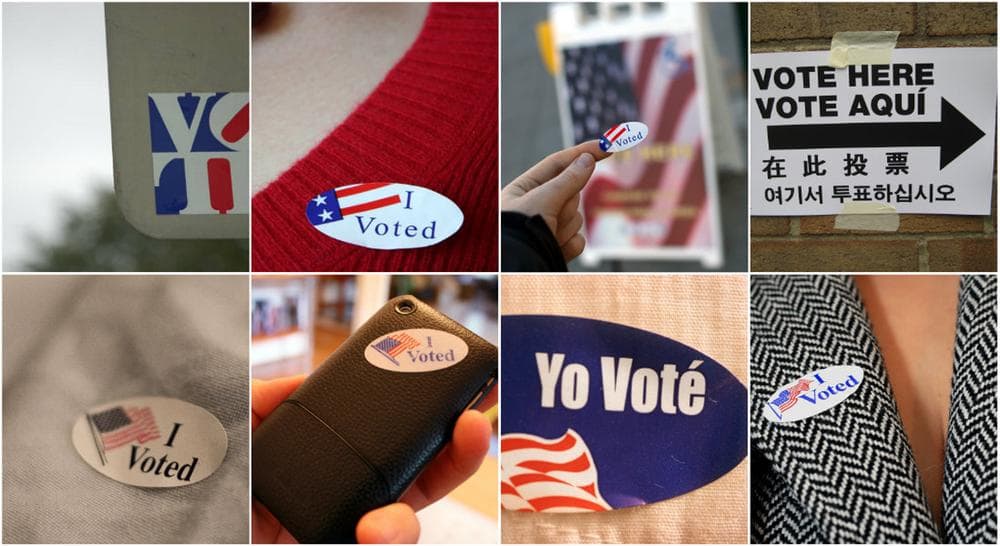Advertisement
Voting For My Mother
“I want an absentee ballot,” my mother said to me.
I just looked at her, and waited for her to think things through.
“Can you get me one?” she persisted.
I said nothing.
“Oh, yes,” she said after a few moments. “Never mind.”
It was late winter. The Boston Mayoral race was heating up, and my mother was anxious to cast her ballot.
Her ability to cast her ballot for the next mayor of Boston was one of the many things about life that she didn’t want to let go of.
She’d forgotten, as I often wanted to, that she’d just started hospice services. Her prognosis was a matter of weeks, not months. The preliminary election was in September — a September she wouldn’t live to see.
My mother was a product of World War II Hungary. She came of age huddled in bomb shelters. There was one year, she told me, when school was barely in session, but the entire student population was advanced a grade to keep the country going. The war was followed by life under Soviet occupation. She immigrated to the U.S. in the late 1950’s.
Ever since I can remember, my mother always voted. Casting her ballot was a validation of our democracy, and she never missed an opportunity to do so, even when she was very ill. Her vote counted, and that meant a lot.
In 2008, she was excited to vote for a woman for president, Hillary. Last year, she was pleased to support Elizabeth Warren in the Massachusetts Senate race. This year she focused on our mayoral election, and was smitten with John Connolly’s candidacy. She liked his positions — and especially admired how, years before his run for mayor, the city councilor had taken time to personally help her now-teenaged grandson.
My mother died in April, on the day of the post-Marathon city-wide lockdown. It took me a while to move on, to sort through her possessions and empty her apartment. But then in late summer, I contacted the Connolly campaign and offered to volunteer.
And so, at age 51 and with two recent hip replacements literally under my belt, I began to canvass for the first time. I was very shy initially. I’d always hated the intrusion of canvassers, and thought that everyone must resent those pesky door-knockers with clipboards. I quickly found, however, that while there were people who were rude or who pretended not to be home, the majority I spoke with were hungry for information about the election, and were willing to engage with me.

I thought of how desperate my mother had been to cast her ballot as I urged people to get out and vote. Many of the conversations I had with voters resonated with me for days.
There was one elderly man who didn’t open his door, but instead spoke to me through the mail slot. I bent down, and we conversed through the narrow opening, eyeball to eyeball, his gnarled finger quivering as he held the slot open. Yes, he assured me, he would vote. No, he did not need a ride to the polls.
There was the young, fashionable couple, who sat on the front steps clipping their toenails together one sunny Saturday morning. They politely paused their grooming to listen to my pitch, and when I left, gave me a thumbs up to indicate that my conversation had had an impact.
There was the visually impaired man, who asked if campaign materials could be printed in larger font sizes.
And there was the man who opened his door wearing medical gloves and holding plastic tubing, who told me that his wife was very ill, and that he was helping her with her kidney treatments. Yes, he said, we had their votes. But please don’t canvass them again.
Our freedom to vote, to chart the course of our country — and of our city — never ceased to move her.
I had already written this essay when I canvassed one recent Saturday. The final address on one page of my route was familiar, but I didn’t realize what it was until I was a few doors down: the funeral home that had buried my mother. It was a residence, too; the funeral director lived there.
I climbed the steps to the porch, and just stared at the doorbell. I felt waves of grief pour over me. I knew I couldn’t ring the bell without tears coming, and I rationed that I wouldn’t make a very convincing canvasser if I’d just been sobbing. I stood there a few moments, absorbed the sorrow, and then turned my back and walked on to the next house on my list.
My mother would be proud of me, I know. Our freedom to vote, to chart the course of our country — and of our city — never ceased to move her. Her ability to cast her ballot for the next mayor of Boston was one of the many things about life that she didn’t want to let go of. I hope that by urging people to vote, I help meet her final request ... for an absentee ballot.
Related:
- Louise Kennedy: Vote For Gagi — Or Anyone You Like
- Thomas J. Whalen: Back When Boston Politics Was A Blood Sport
- Complete WBUR Coverage of the 2013 Boston Mayoral Race
This program aired on October 25, 2013. The audio for this program is not available.